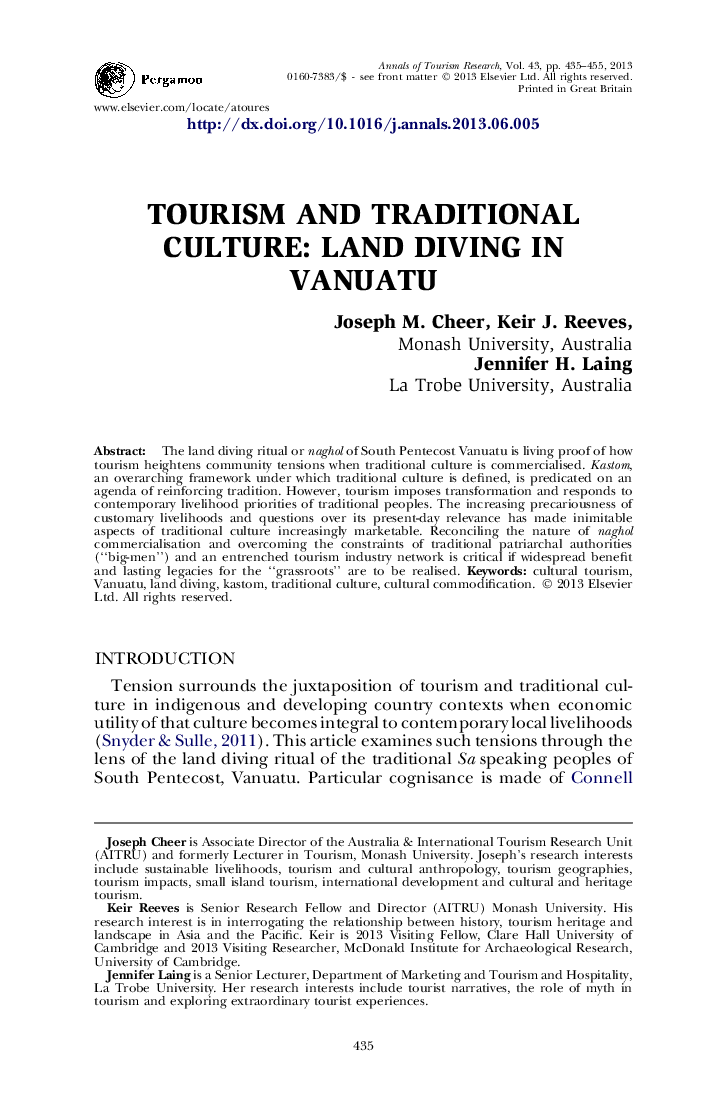| Article ID | Journal | Published Year | Pages | File Type |
|---|---|---|---|---|
| 1007200 | Annals of Tourism Research | 2013 | 21 Pages |
•The commercialisation of traditional culture on Pentecost Island is problematic.•The commercialisation of traditional culture is controlled by non-grassroots actors.•The capacity for traditional communities to control tourism development is limited.•Livelihood priorities outweigh the desire to maintain the sanctity of tradition.•Understanding the impacts of the commercialisation of traditional culture is pressing.
The land diving ritual or naghol of South Pentecost Vanuatu is living proof of how tourism heightens community tensions when traditional culture is commercialised. Kastom, an overarching framework under which traditional culture is defined, is predicated on an agenda of reinforcing tradition. However, tourism imposes transformation and responds to contemporary livelihood priorities of traditional peoples. The increasing precariousness of customary livelihoods and questions over its present-day relevance has made inimitable aspects of traditional culture increasingly marketable. Reconciling the nature of naghol commercialisation and overcoming the constraints of traditional patriarchal authorities (“big-men”) and an entrenched tourism industry network is critical if widespread benefit and lasting legacies for the “grassroots” are to be realised.
